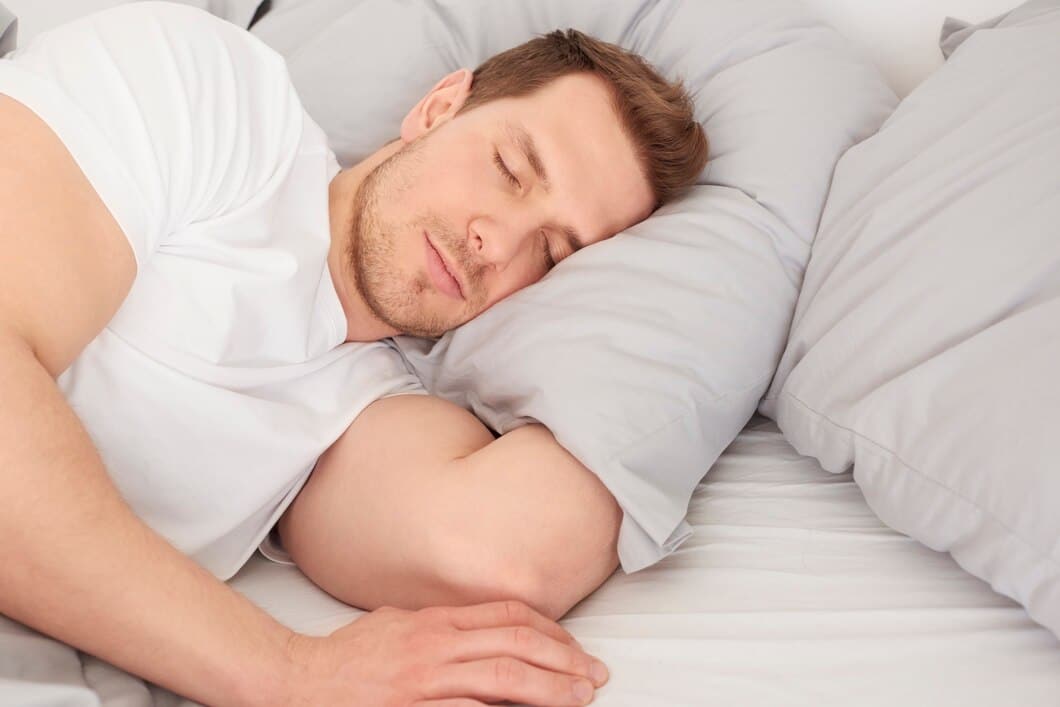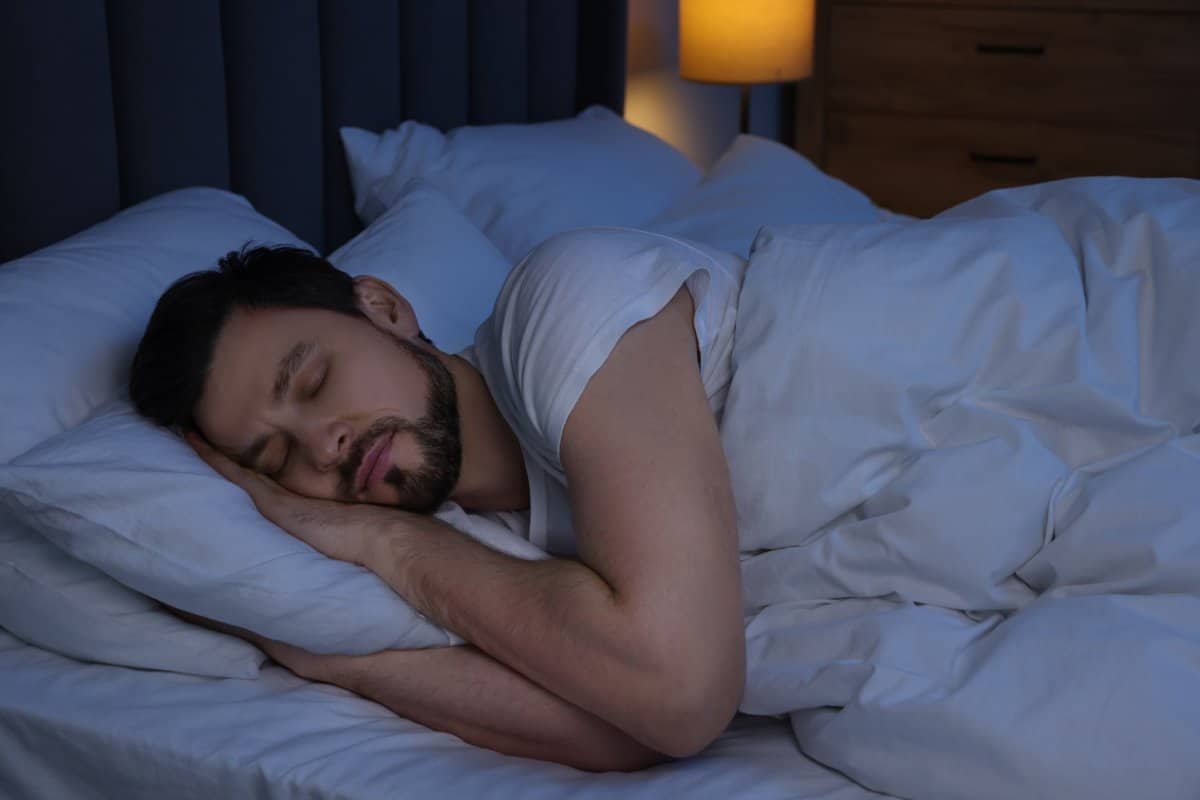Sleep is a vital component of maintaining optimal health and well-being, as it allows the body to rest, recover, and restore its energy levels. Good sleep quality is essential for keeping the body and mind functioning at their best, supporting cognitive function, mood regulation, and physical performance. Unfortunately, as men age and experience a decline in testosterone levels, they may encounter sleep disturbances that can negatively impact their overall health and quality of life.
Testosterone, the primary male sex hormone, plays a crucial role in regulating various physiological functions, including sleep. Produced mostly by the testicles, testosterone influences the body’s sleep-wake cycle, regulating the duration and quality of sleep. Low testosterone levels can lead to sleep disruptions, causing symptoms such as insomnia, sleep apnea, and restless legs syndrome. These sleep disorders can, in turn, contribute to a host of health problems like obesity, cardiovascular disease, and mental health issues.
Testosterone replacement therapy (TRT) can provide a highly effective solution to improve sleep quality by restoring hormonal balance in men aged 35-54. Addressing testosterone deficiency through TRT can help mitigate the adverse effects of sleep disturbances, supporting enhanced overall health, mood, and productivity.
In this article, we will delve into the connection between testosterone levels and sleep quality, discussing the potential benefits of testosterone replacement therapy in promoting restful, restorative sleep for middle-aged men. With expert insights from the team at Mantality Health, we aim to provide you with the knowledge and guidance needed to enhance your sleep quality and boost your overall well-being.
Join us as we uncover the power of testosterone therapy in helping men reclaim their sleep and live healthier, more fulfilling lives.
Testosterone Replacement Therapy and Its Positive Impact on Sleep Quality for Men
1. Understanding the Link Between Testosterone Levels and Sleep Quality
Research has established a strong connection between optimal testosterone levels and good sleep quality. Testosterone production is typically highest during the sleep phase, specifically in the deep, restorative stages of sleep known as slow-wave sleep. During this time, the body also restores and repairs tissues, builds bone and muscle mass, and consolidates memories, which are essential processes for overall health and well-being.
Conversely, poor sleep quality and insufficient sleep duration can lead to lower testosterone levels. In fact, studies indicate that men with persistent sleep disturbances have significantly reduced testosterone levels compared to those with healthy sleep patterns. This creates a vicious cycle, as low testosterone can further exacerbate sleep disruptions.
2. The Impact of Testosterone Replacement Therapy on Sleep Disorders
Testosterone replacement therapy can help address various sleep disorders related to low testosterone levels in men. Some of the most common sleep disturbances linked to testosterone deficiency include sleep apnea, insomnia, and restless legs syndrome.
- Sleep Apnea: Obstructive sleep apnea (OSA) is a sleep disorder characterized by repeated episodes of partial or complete blockage of the airway during sleep. Low testosterone levels may contribute to the development and severity of OSA in men, and TRT has been shown to improve sleep quality and decrease the severity of OSA in some cases.
- Insomnia: Insomnia is a sleep disorder marked by difficulties falling asleep, staying asleep, or waking up too early. Low testosterone can exacerbate insomnia symptoms, leaving men feeling tired and unrested. Research shows that testosterone replacement therapy can help improve sleep quality, onset, and efficiency for those with insomnia related to low testosterone levels.
- Restless Legs Syndrome: Restless legs syndrome (RLS) is a neurological disorder characterized by an irresistible urge to move the legs, often accompanied by uncomfortable sensations. Studies have found a correlation between low testosterone levels and the prevalence of RLS, suggesting that testosterone therapy may help reduce RLS symptoms and promote better sleep in affected individuals.
3. The Benefits of Improved Sleep Quality Through Testosterone Replacement Therapy
Achieving better sleep quality through testosterone replacement therapy offers a host of benefits to men’s overall health and well-being:
- Enhanced Cognitive Function: Proper sleep is essential for maintaining optimal cognitive function, including memory, attention, and decision-making abilities. Improved sleep quality can lead to better mental performance and productivity throughout the day.
- Increased Energy and Reduced Fatigue: Adequate rest and high-quality sleep contribute to increased energy levels and reduced feelings of fatigue, allowing men to engage more fully in daily activities and physical exercise.
- Better Mood Regulation: Healthy sleep patterns are crucial for emotional health and mood regulation. Improved sleep quality can help reduce symptoms of depression, anxiety, and mood swings.
- Stronger Immune System: Sleep plays a pivotal role in supporting a robust immune system. By achieving better sleep quality, men can strengthen their body’s defenses against potential illnesses and infections.
4. What to Expect When Pursuing Testosterone Replacement Therapy for Improved Sleep Quality
When considering testosterone replacement therapy to improve sleep quality, it’s essential to consult with a qualified healthcare professional, such as the experts at Mantality Health. Before beginning treatment, a thorough evaluation will be conducted to assess your hormone levels and determine your unique needs.
Testosterone replacement therapy is available in various forms, including injections, gels, patches, and pellets. The most appropriate treatment method will be determined by your healthcare provider, considering factors such as your age, lifestyle, and health history.
It’s important to note that while testosterone therapy can effectively improve sleep quality in many men, it may not be the ideal solution for everyone. Additional interventions, such as lifestyle changes, stress reduction techniques, and proper sleep hygiene, may be necessary to complement TRT and fully address sleep disturbances.
Conclusion
Addressing sleep quality is a vital aspect of maintaining good health for men aged 35-54. By seeking testosterone replacement therapy, you can take a proactive approach to better sleep and enhanced overall wellness.
If you’re interested in learning more about testosterone replacement therapy and its potential benefits for your sleep quality and overall well-being, contact the Mantality Health team. With expertise in personalized treatment plans and comprehensive care, we can help you make informed decisions about restoring balance to your hormone levels, optimizing your sleep, and embracing a healthier future.
Don’t allow low testosterone and disrupted sleep to impact your quality of life – reach out to Mantality Health today and discover the transformative power of our testosterone therapy in Omaha in promoting restful, restorative sleep and long-lasting vitality.





